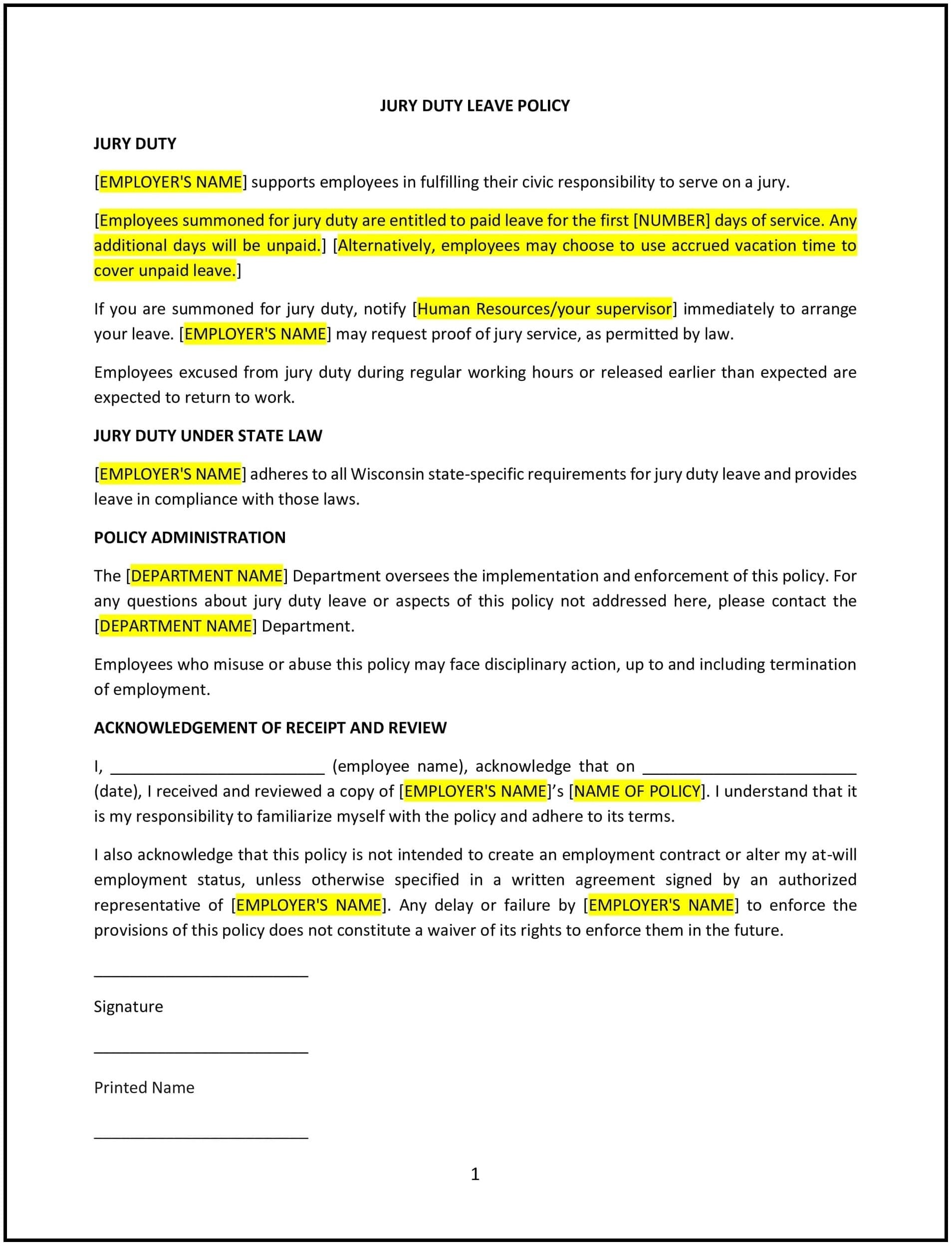Got contracts to review? While you're here for policies, let Cobrief make contract review effortless—start your free review now.

Customize this template for free
Jury duty leave policy (Wisconsin)
A jury duty leave policy helps Wisconsin businesses achieve compliance with state law while supporting employees who are called to serve on a jury. This policy outlines eligibility, leave procedures, and compensation guidelines, ensuring fairness and minimizing workplace disruption during jury duty.
By implementing this policy, businesses can foster a supportive work environment, comply with Wisconsin laws, and maintain operational continuity.
How to use this jury duty leave policy (Wisconsin)
- Define eligibility: Specify which employees are eligible for jury duty leave based on their employment status (e.g., full-time, part-time, temporary).
- Outline the leave procedure: Provide steps for employees to request leave, including notification timelines and documentation, such as jury duty summons.
- Address compensation: Clarify whether the leave is paid or unpaid, and whether employees can use paid time off (PTO) for jury duty.
- Protect job security: Emphasize that employees’ jobs are protected while they serve on a jury, and they cannot be retaliated against for taking jury duty leave.
- Set leave duration: Define the maximum length of time employees can take off for jury duty and any conditions for extending leave.
- Improve compliance: Align with Wisconsin state laws regarding jury duty leave and compensation, and adjust the policy as needed to comply with any changes.
Benefits of using this jury duty leave policy (Wisconsin)
This policy offers several benefits for Wisconsin businesses:
- Promotes compliance: Aligns with Wisconsin state laws that protect employees called to serve on a jury.
- Supports employees: Demonstrates the company’s commitment to civic duties by allowing employees to serve on a jury without fear of losing income or job security.
- Promotes fairness: Provides clear guidelines for how employees can request leave and what they can expect regarding compensation.
- Reduces legal risks: Minimizes the potential for legal disputes related to jury duty leave or retaliation claims.
- Enhances employee morale: Fosters a supportive workplace culture by respecting employees’ civic responsibilities.
Tips for using this jury duty leave policy (Wisconsin)
- Communicate the policy clearly: Ensure employees understand their rights regarding jury duty leave and how to request time off.
- Track leave requests: Implement a system for tracking jury duty leave requests and approvals to avoid scheduling conflicts and ensure adequate coverage.
- Encourage early notification: Ask employees to notify management as soon as they receive a jury duty summons to allow time for planning.
- Provide compensation clarity: Clearly state whether employees will be paid during jury duty leave or if they will need to use PTO.
- Update regularly: Revise the policy as needed to reflect changes in Wisconsin laws, company practices, or industry standards.